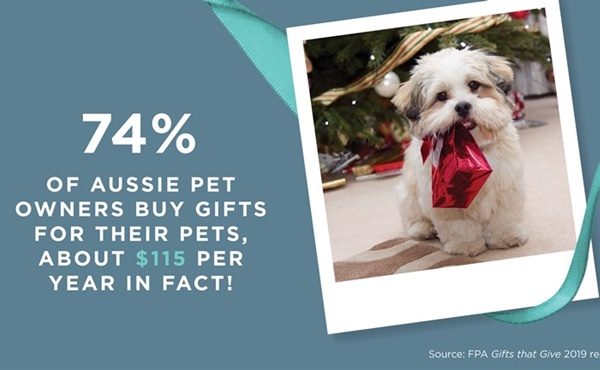It is a well-known fact that Australians love to give gifts, and recent research shows that 85 per cent of people actually get more joy from giving gifts to others than receiving gifts themselves.
Experts in psychology generally agree that the altruistic act of giving has neural and emotional benefits. These range from elevated activity in regions of the brain associated with pleasure, social connection, and trust, all the way through to lowering blood pressure and stress levels.
According to new Financial Planning Association of Australia (FPA) Gifts that Give national research Australians spent about $100 each month on buying gifts, with a preference for cash or gift cards, while re-gifting, bulk buying gifts and group-gifting also rate high.
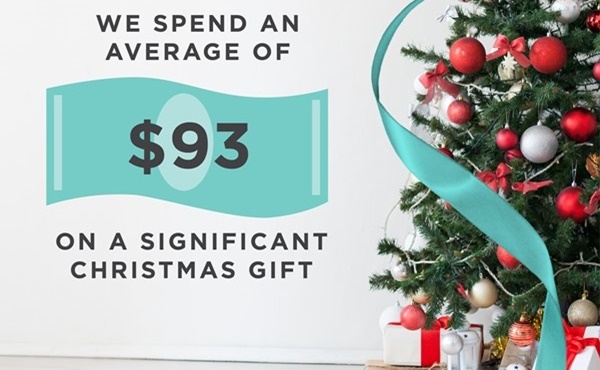
However, 73 per cent of the total $20 billion that we spent each year on gifting is unplanned, says FPA CEO, Dante De Gori.
“There’s literally billions of dollars of household spend that is simply not budgeted for by nearly three in four Australians across genders, generations and geographies,” he explains.
“Men are less likely than women to allocate a budget towards gift-giving (24 per cent men and 31 per cent of women). Those least likely to budget for gifts are older families, couples and older singles, of whom 79 per cent don’t have a budget allocation for gifts.
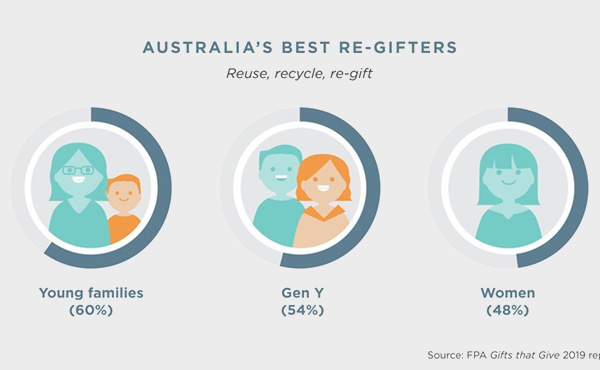
“Surprisingly, the vast majority of us are happy with the amount we spend on gifts. Just one in eight of us (13 per cent) feel we spend too much on gifts, while most of us (81 per cent) feel we spend about the right amount.”
So what do we spend our money on? We definitely like to splurge on our furry friends. Indeed, 74 per cent of Australian pet owners buy gifts for their pet, spending on average $115 a year. Gen Y spends even more, $121, while Gen X is the most generous with $142 a year.
Weddings are Australia’s biggest gift-giving occasion. According to the report we spend, on average, $137 on a wedding gift, with two in five giving cash or gift cards, rather than purchasing a tangible gift.
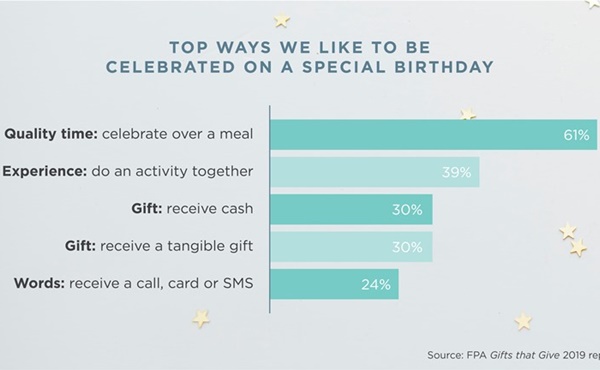
Indeed, overall cash and gift cards are Australia’s new go-to gifts. We not only prefer to give cash, we also prefer the convenience and usefulness of receiving cash or gift cards. We are more likely to want cash and gift cards for a wedding, birthday or Christmas than any other category of gift.
Re-gifting is becoming more common as it is increasingly perceived as a strategy to reduce waste and lengthen an item’s lifespan. Two in five Australians (41 per cent) have re-gifted a gift to another person or for another occasion, with females more likely to re-gift (48 per cent have done so, compared to 35 per cent of males). It is a smart strategy to reduce waste and lengthen an item’s lifespan.
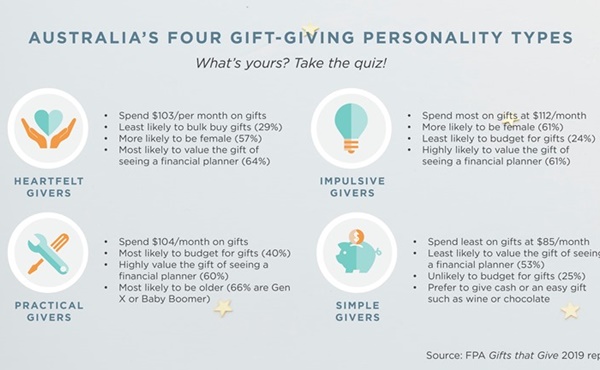
Other gifting trends and facts include:
Bulk buying: Almost one in three Australians bulk-buy gifts in advance as a way to save time and money. Females are more likely to do so than males (31 per cent cf. 24 per cent).
Group-giving: Nearly three quarters (73 per cent) of Australians participate in group gift-giving. It is particularly popular among the younger generations. Four in five Gen Zs and Gen Ys (80 and 81 per cent respectively) participate in group giving, compared to only three in five Baby Boomers (62 per cent). The report reveals the different roles people play in group-gifting, including ‘give money’ (33 per cent); ‘share ideas’ (24 per cent); ‘wrap the gift’ (15 per cent); ‘buy the gift’ (14 per cent) and ‘write the card’ (14 per cent).
Christmas: Australians spend an average of $93 on a significant Christmas gift. Those with young families spend more, with an average of $117 on a significant Christmas gift.



